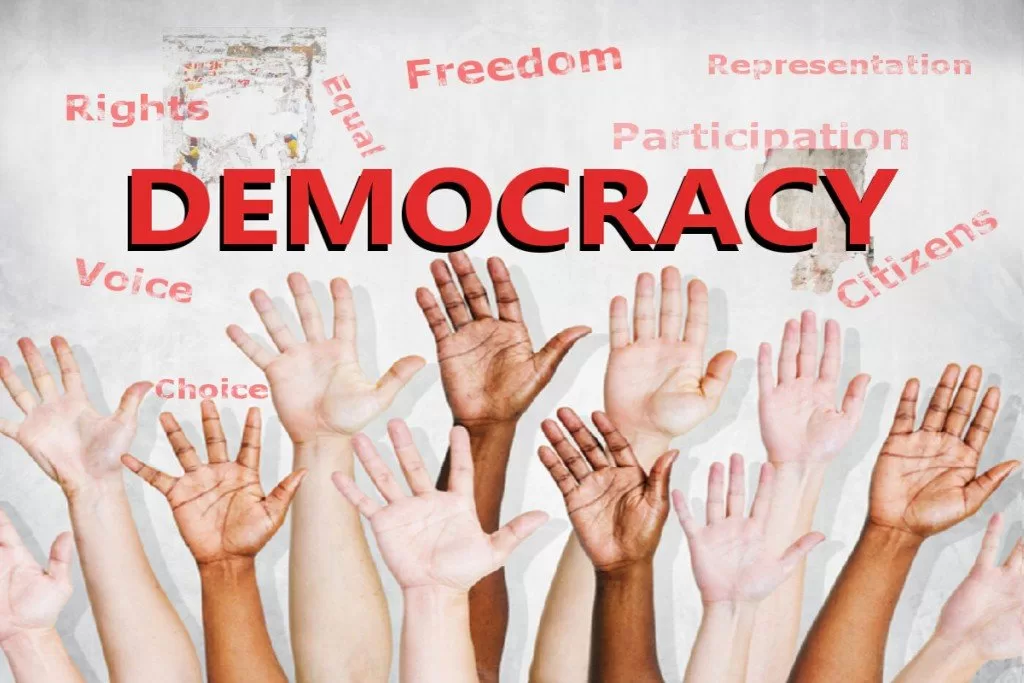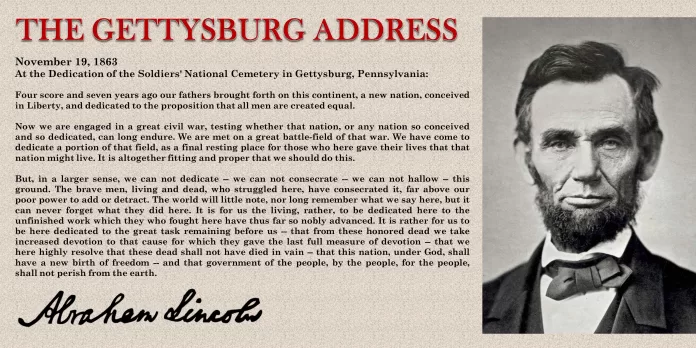How does one define democracy? Of the many that can be googled from the internet Google appears to have made reference books redundant my favourite is the line from Abraham Lincoln’s Gettysburg address where he refers to democracy as a “government of the people, by the people, for the people”.
The corner stone of democracy lies in the fact that the government of a state should accurately reflect the collective will and wisdom of its people and there is a vast consensus that democracy with all its shortcomings is still better than any other form of government. Naysayers will point out that this essentially means that elected officials in a democracy, even if their wisdom and acumen is much higher than the national mean, will be handicapped by the knowledge that their thoughts and national policies must be in sync with those of the average citizens of the state or else they will be ousted in the polls. Even if the likes of Einstein, Bertrand Russell and Iqbal are elected to power, they would be forced to operate at the level of Bush, Blair and Gilanis. History, however, does not quite support this observation.
Intelligence and brilliance are very desirable leadership qualities, democratic or autocratic but in a Democratic or autocratic, but in a democracy especially, if leaders do not keep in mind the intellectual and traditional limits of the society they head, they are likely to implement policies that might be well-meaning but which are likely to boomerang. King Amanullah Khan of Afghanistan in the 1920s and Iran’s Mohammad Reza Pahlavi tried to introduce modernisation in a society at a pace that the average Afghan and Irani could not digest or approve. The result was the overthrow of both potentates. True, in the two cases, kingship rather than democracy was in operation, which appeared to have given the licence to the rulers to ignore the people’s will, with devastating consequences to themselves and their nations, but these fatal flaws can occasionally occur in a democratic setup as well.
Hitler is a classic but extreme example. An evil genius, he used his oratory skills to mesmerise the Germans and came to power on the strength of the majority vote of his people and then went on to implement policies that led to the WWII carnage and defeat of Germany. Tony Blair makes an interesting case study. As the premier of the UK, he was intelligent, articulate and persuasive and used these qualities to convince his cabinet to approve his policy of joining the US in the invasion of Iraq, even when a fair number of Britons opposed it. He was ultimately removed from power but not before his arrogant decision that flew in the face of the sentiments of the British public caused considerable harm to British world interests and influence. Bush Jr, on the other hand, was not known for his intellectual prowess. His Vice-president Dick Cheney, along with his cabal of neocons, however, fit the bill and their megalomania, many believe, influenced the not so intelligent but born-again Christian George Bush to blunder into Iraq with disastrous consequences and a loss of face, power and prestige for the lone superpower that his successor Obama is finding hard to reverse. In the Iraq fiasco, the American media, under the influence of the Jewish lobby and the powerful industrial military complex, misled the public in garnering public support for the aggression.
A functioning democracy ideally should throw up leaders who may or may not be super intelligent but are in touch with the mean values of the people they represent and do not introduce policies that cannot be fathomed and absorbed by the common citizens. Any deviation from this principle is likely to sour the fruits of democracy but the safety valve of periodic elections inherent in a democratic setup allows the nation to elect leaders who can apply a course correction and halt the decline.
History has proved beyond any doubt that democracy trumps any other form of governance but the main hurdle that nation states with fledgling democracies have to overcome is to have systems in place that can ensure free and fair elections, where the individuals and parties that are successful truly reflect the will of the people. That is easier said than done and as the cliché goes, ‘the devil lies in the detail’.
Many intellectuals in developing countries like Pakistan argue that a high literacy rate is an essential requirement for democracy based on adult franchise and in a society where literacy is low, democracy will invariably lead to rogues and demagogues assuming power through fraudulent/manipulated elections. That is not quite true. While a literate public is a very desirable attribute in any society, lack of education in individuals does not automatically translate into their being devoid of wisdom; rather it reflects a lack of opportunity. Even uneducated people are wise enough to distinguish right from wrong and given the freedom and opportunity will choose wisely in the polls.

‘What then are the essential features for implementation of democracy? Two come to mind. First is an independent judiciary that is able to dispense justice without discrimination, and the second is a free media that can expose charlatans and imposters and prevent them from misleading a gullible public. The silver lining in the otherwise dismal picture in Pakistan is that today it is fortunate to have a judiciary that is free and is making efforts to be fair, and a media that is noisy, irrepressible, at times reckless but nevertheless free and learning the ropes of journalism at a rapid rate. There is room for optimism in the future.
In the print and electronic media, a raging debate is going on about the abject failure of the current democratically elected government to deliver and some even opine that dictatorship is more suited to the ethos of Pakistanis. They dream of a benevolent dictator but are unable to show a way that can guarantee benevolence in an autocrat if one could be found, because the two qualities contradict each other.
Rather than searching for a system to replace democracy, the Pakistani public should be informed of the factors that have led to the empowerment of groups that the majority consider corrupt and inefficient. It could well be a reflection of Pakistani society and the maxim ‘a society gets the leadership it deserves’ has prevailed. In that case, rather than lament the quality of elected officials, there is a need to look inwards and remove major weaknesses that have seeped into the very fabric of society as a whole. In addition, they should be reminded that democracy gives them an opportunity to exercise their vote again and the next time they should choose wisely. Mistakes can still be made in people’s selection but post-elections, they must maintain a strict vigil on the next lot of leaders they elect and ensure they do not deviate from the manifesto on which they won their support. The Pakistani constitution gives a five-year timeframe between elections but if the elected officials are deemed to be failing in their job at any stage, the demand for fresh elections is well within democratic norms, as long as the change being sought is pursued under the rules provided in the country’s constitution. The parties in power who project such demands as steps to derail democracy are wrong and are patently misleading the public.
The Pakistani constitution gives a five-year timeframe between elections but if the elected officials are deemed to be failing in their job at any stage, the demand for fresh elections is well within democratic norms, as long as the change being sought is pursued under the rules provided in the country’s constitution. The parties in power who project such demands as steps to derail democracy are wrong and are patently misleading the public.
Pakistan’s system of governance has alternated between military dictatorship and democracy, with the former having the lion’s share and upstaging the latter at crucial stages. This has to stop and democracy must not be derailed as eventually the public will learn to select and elect their representatives wisely. There is no better system of governance than democracy and the attempt to reinvent the wheel must end.




